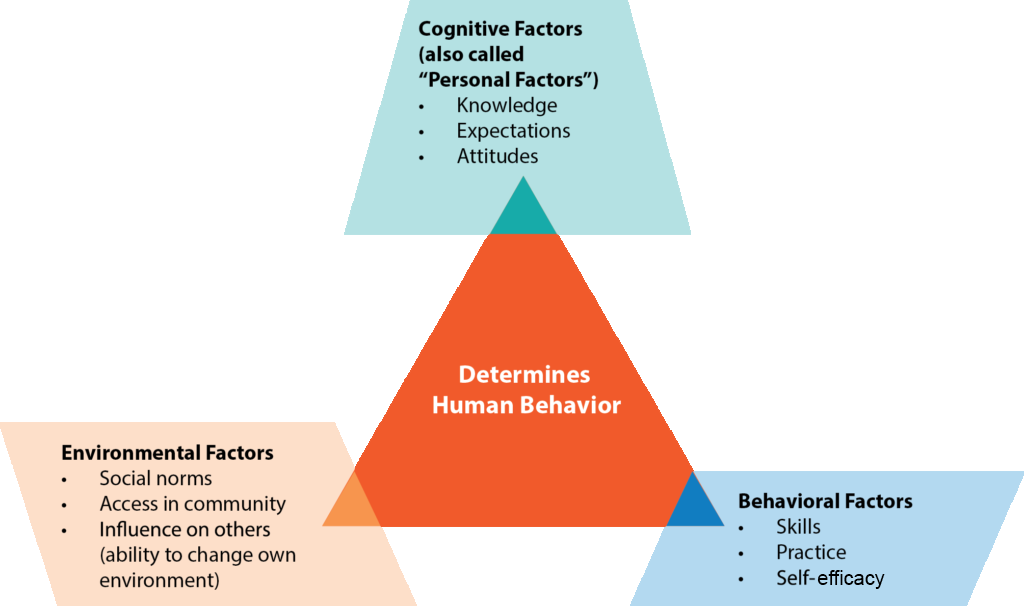Social Cognitive Learning Theory
 The Social Cognitive Learning Theory acknowledges the constant interaction that exists between the individual and his or her environment, both structural and social, to shape behavior. Three personal cognitive factors that are affected by the environment influence behavior:
The Social Cognitive Learning Theory acknowledges the constant interaction that exists between the individual and his or her environment, both structural and social, to shape behavior. Three personal cognitive factors that are affected by the environment influence behavior:
- Observational learning: Individuals are more likely to perform a desired behavior if they observe others modeling that behavior and experiencing the subsequent positive rewards.
- Outcome expectations: Individuals are more likely to practice a desired behavior if they believe the benefits of performing that behavior and outweigh the costs.
- Self-efficacy: Individuals are more likely to practice a desired behavior if they perceive that they have the necessary skills and capacity to do so (Bandura, 2001; Glanz & Rimer, 2005).
This theory may be more appropriate for the evaluation phase of an emergency or post-emergency, as it highlights the importance of creating an enabling structural and social environment. In particular, according to this theory, SBCC interventions should:
- Promote role models who practice the desired behaviors and experience resulting benefits. This can be done through entertainment education activities such a radio and TV dramas, and through community events in which people performing the desired behaviors are celebrated.
- Promote the rewards and benefits that can be expected from engaging in the desired behaviors.
- Provide information, tools and skills to increase people’s perceived ability to engage in the desired behaviors.

